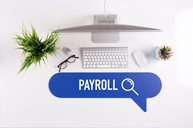Tax Deductions for Personal Trainers and Fitness Instructors
To get the best possible tax outcome, it's essential that you understand what you can – and what you can't – claim against your taxes, so here's my checklist of the deductions all workers in the fitness industry should be considering claiming this tax year.
Remember this list isn't exhaustive and not all the deductions will apply to everyone. Similarly, you may be entitled to some deductions that aren't listed here. Make sure you get professional help from a tax agent like H&R Block to ensure that you're getting your return right!
Travel and meals
You can't normally claim the cost of the daily commute to and from work. The only exception to that rule is if you have to carry bulky equipment (such as inflatable exercise balls, or other exercise equipment) to and from work and there is no secure place of storage for them at your work.
You can claim the cost of travelling between two workplaces, such as between two gyms or between two personal training appointments.
If you plan to use your own car for work purposes, you can either claim a set rate of 88 cents per kilometre (for the 2025 year) for all work journeys or you can claim the actual expenses incurred. If you choose the latter, you'll need to keep receipts for all costs and also keep a logbook of all your journeys for a 12 week period.
Just because you're in the fitness or sporting industry doesn't mean you can claim for the cost of attending sporting events. So, if you're a tennis coach, you can't claim for the cost of tickets to the Australian Open. If, however, you're coaching one of the players in the Open, you can claim the costs of attending.
Work-related clothing
You can claim a deduction for clothing that you're required to wear as a uniform to work that has the logo of the gym or sporting club where you work on it.
Unfortunately, you can't claim a deduction for the cost of purchasing or cleaning a plain uniform or conventional clothing you wear to work, even if your employer tells you to wear them. So, general exercise clothing like track suits, shorts, tank tops, running shs, socks, t-shirts and so on, can't be claimed.
If you take classes outdoors, you can claim the cost of sun protection gear such as sunglasses, hats and sunscreen.
Buying fitness equipment
If you are employed in the fitness industry, you can claim an immediate deduction for any work equipment that costs $300 or less. If the item costs more than $300, then you can write off the cost over the expected life of the assets. That could include weight sets, treadmills, exercise bikes, and other personal training equipment.
Remember, if you also use the equipment for personal use, you'll need to apportion the cost between work use and personal use. You can only claim the work-related element.
If you own your own fitness business (rather than being employed by somebody else), and your business has a turnover of less than $10 million, you can claim and immediate deduction for items that cost less than $20,000 that you have installed ready for use during the 2024 and the 2025 years (rather than writing off the cost over the expected life of the asset). The Government has announced that this concession will be extended to the 2026 year. As well as fitness equipment, you can use the same tax break to write-off any other capital assets used in your business like:
- TV sets and other equipment to build the "ambience" in your fitness area
- Furniture for break-out or rest areas
- Office equipment, like desks, chairs and cabinets
- Technology such as laptops, desktop computers, phones and tablets
- Motor vehicles
Work-related training
You can claim expenses for university or TAFE fees to the extent that the course relates to you current employment and you're not being reimbursed. For example, a personal trainer could claim for the cost of doing a Bachelor of Exercise Science. You can also claim associated costs such as text books, travel to the educational institution and stationery.
If you need to undertake professional development to keep up to date with the latest trends and practices in fitness and health, those costs will also be deductible to the extent they are linked to your current job.
You can't claim for a pre-vocational course, such as a Certificate III in Fitness.
Other deductions
They may not be as significant in dollar terms as some of the items listed above, but make sure you claim the following:
- Any work-related subscriptions or membership fees
- Magazines, journals, books, apps or websites which are related to your work
- The cost of using your personal mobile phone for work-related purposes
- Equipment hire
Gym memberships
Your job is to help everybody else improve their physical fitness so surely it makes sense that you can claim the cost of boosting your own fitness? Sadly not. The ATO takes a hard line on gym memberships, saying that they are only claimable where the person claiming them needs to have a level of fitness well above normal. Professional sportspeople are quoted by the ATO as an example of who can make a claim whilst personal trainers and fitness instructors are specifically ruled out.
Remember to keep records!
Even if you've incurred any of the above expenses, the golden rule is that you can't make a claim unless you can prove you spent the money (and also that you weren't reimbursed by your employer). So, make sure you keep all relevant receipts, invoices, bank statements and credit card statements. If you're not sure if you can make a claim, keep the receipt anyway and discuss it with your tax agent.
Remember, you don't need to keep physical receipts, and it's acceptable to keep a digital copy (such as a photo of a receipt or an email receipt) provided it is possible to read:
- The name of the supplier
- The amount of the expense
- Nature of the goods or services
- Date the expense was paid
- Date of the document
You also don't need to keep receipts for expenses under $10 (as long as these don't cumulatively come to more than $200) or expenses where it is not possible to obtain a receipt. However, you will need the keep a diary record of these amounts.
What happens if I make a mistake in my tax return?
This can happen to anyone and dealing with it as soon as possible is always the best approach. It's really important that you take great care in putting together the information and supporting documentation when filing your tax return, and only claim deductions that are genuine to avoid penalties and possibly even prosecution from the ATO.
It's easy to make innocent mistakes sometimes, and if you self-lodge and realise you've submitted incorrect or unsubstantiated claims then you should contact H&R Block immediately and we will assist you in making the necessary amendments.
Updated June 2025




.png?width=55&height=48&ext=.png)
-1.svg)

